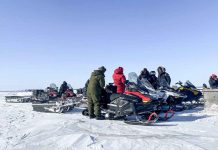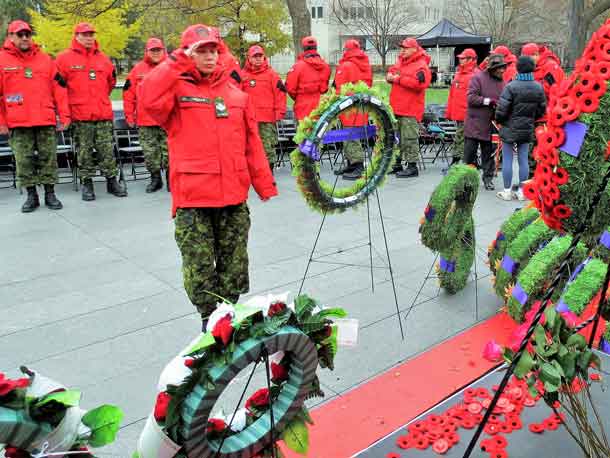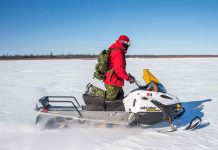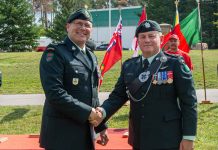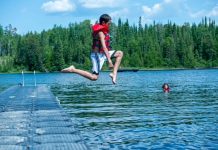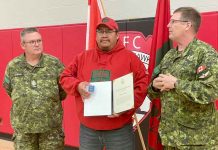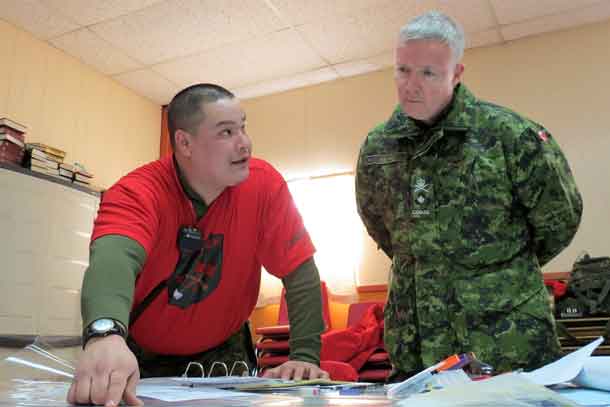

THUNDER BAY – Canadian Rangers from four Cree First Nations on the James Bay coast have completed a complex search and rescue training exercise in which they impressed the general commanding the army in Ontario.
“There’s an understated confidence in how they move around,” said Brigadier-General Stephen Cadden, commander of 4th Canadian Division, who spent a day travelling by snowmobile with the Rangers. “How can you not be impressed by their abilities to operate in the North? I was very comfortable with their skill level and I am very thankful for what they do.”
In 2016 Canadian Rangers in Northern Ontario conducted 25 search and rescue operations and saved 32 lives. “I have the sense they are being called out a bit more frequently than they were about half a decade ago,” General Cadden said. “They seem to be busier and busier.”
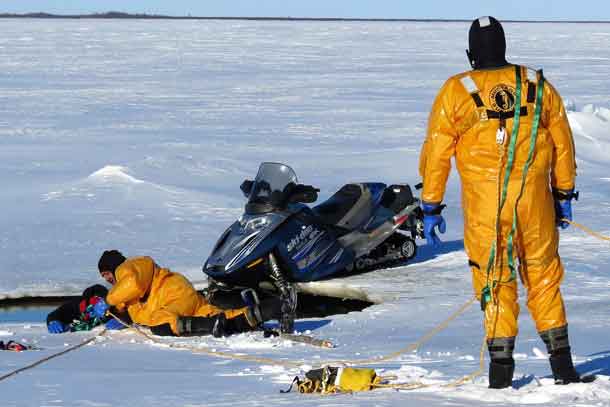
Several of the Rangers’ rescues in 2016 involved Rangers from more than one First Nation working together. The search and rescue exercise seen by General Cadden brought Rangers from Attawapiskat, Kashechewan, and Fort Albany to Moose Factory in response to a call for assistance in a mock search for two missing snowmobilers.
The exercise was preceded by specialized training in all four communities, said Warrant Officer Carl Wolfe, a Canadian Army instructor. It included ice rescue techniques and learning how build emergency landing strips for a rescue plane or helicopter, skills that were used in the exercise. During the exercise the Rangers established a command post in Moosonee and travelled by snowmobile in challenging weather conditions on the frozen Moose River and James Bay.
“They did an excellent job,” Warrant Officer Wolfe said. “The exercise allowed them to demonstrate that they have the ability to conduct complex ground search and rescues together in difficult circumstances.
“They wanted an opportunity to show their chain of command that with the equipment they have been given, the training they have taken part in, and with their ability to function in their environment with the weather and the challenging terrain, they can succeed regardless of the situation.”
The search manager for the exercise was Master Corporal Byron Corston of Moose Factory, one of many Rangers who have completed training with the Ontario Provincial Police to become OPP-certified search operators. He managed the search from an improvised command post set up in a parish hall in Moose Factory.
“The exercise was a challenge,” he said. “But there was a lot of pressure on top of that. You’ve got to do your job but with the general here and a photographer from Combat Camera (a specialized Canadian Armed Forces information service) you have to do it a little bit better. And despite some problems with radio communications I think everyone did.”
(Sergeant Peter Moon is the public affairs ranger for 3rd Canadian Ranger Patrol Group at Canadian Forces Base Borden.)

